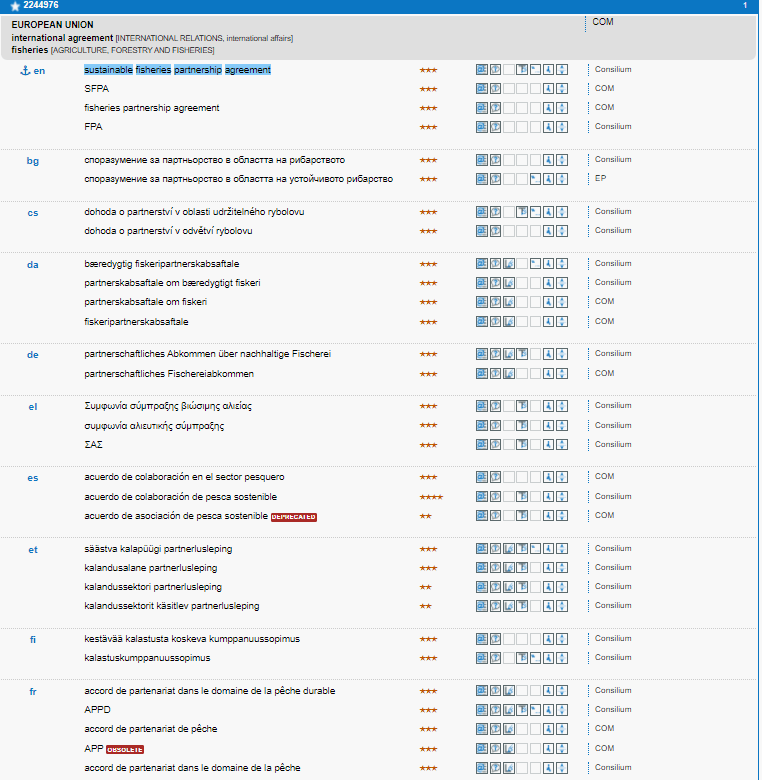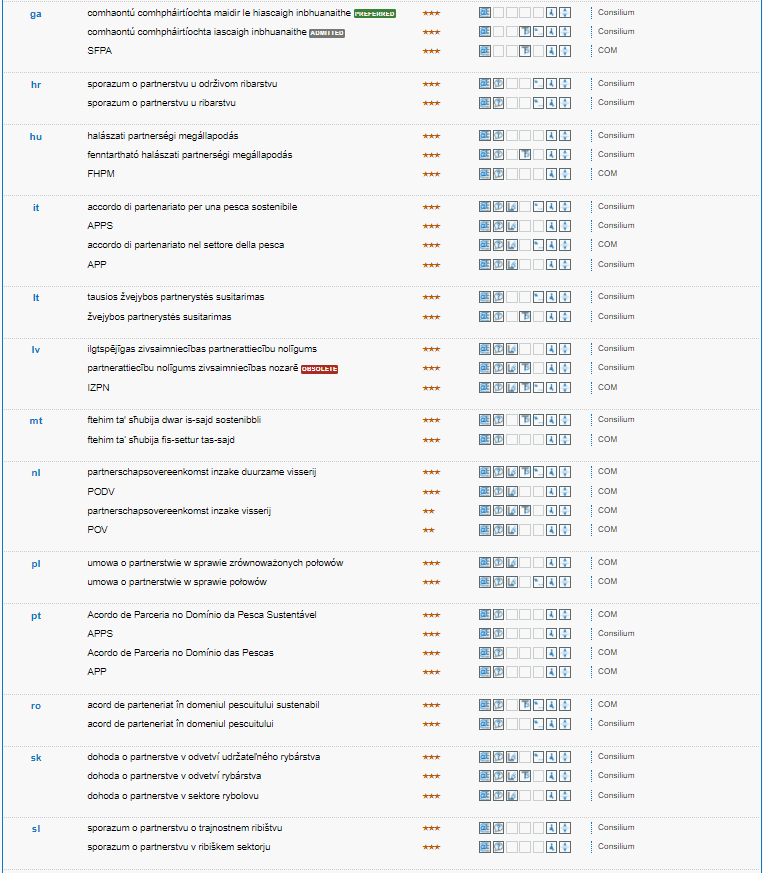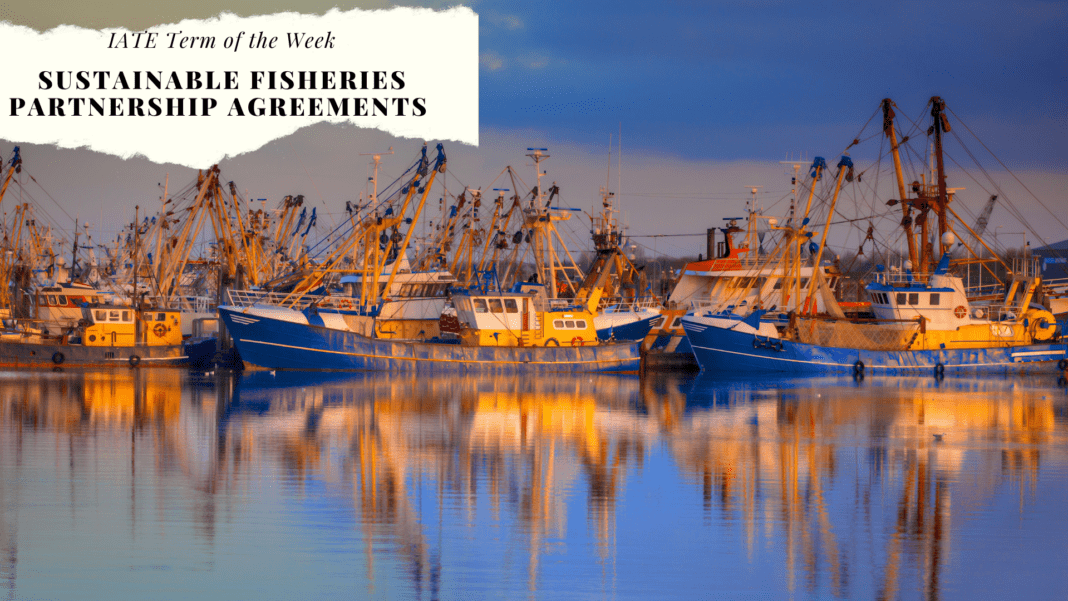The sustainability of fisheries resources is nowadays a concern for all states. Both the fishing industry and governments have understood the importance of preserving resources so that they can also benefit future generations.
European consumers are very careful about what they put on their plates every day, and they strictly monitor the conditions of acquisition and ensure the traceability of seafood products sold in their Union, in order to set up fully documented fisheries. This is an excellent way to safeguard the environment, but above all to promote the sustainability of resources.


Partnership agreements
In line with what is said above, many partnership agreements between the EU and a number of countries have been signed to allow everyone to benefit from the resources, while respecting certain rules. As the world’s largest market for fish products, the European Union had no choice but to be the first promoter of sustainable fishing, both in its territorial and international waters. This is why it signed the Sustainable Fisheries Partnership Agreements with certain coastal states.
As a reference for good fisheries governance, these agreements give EU vessels the right to fish surplus stocks in the Exclusive Economic Zone (EEZ) of any non-EU country. They guarantee not only equality of rules, scientific management, local growth, but also human rights, resource conservation and environmental sustainability.
Types of agreements and the Protocols in force with third countries
We have the core agreements and the ‘dormant’ ones.
There are two main agreements and currently 13 Sustainable Fisheries Partnership Agreements (SFPA) protocols in force with third countries:
- Nine (9) Tuna agreements: They allow EU vessels to pursue migrating tuna stocks along the African coast and in the Indian Ocean (Cabo Verde, Ivory Coast, Sao Tome and Principe, Gabon, Cook Islands, Seychelles, Mauritius, Senegal and Gambia). For the last two states, i.e. Senegal and Gambia, the agreement includes hakes.
- Four (4) Mixed agreements: They give access to a wide range of fish stocks in the Exclusive Economic Zone of the partner country (Greenland, Morocco, Mauritania and Guinea-Bissau).
It should be noted that the EU has concluded seven “dormant” agreements (agreements still in force, but without an implementing protocol, thus no authorisation to fish) with Equatorial Guinea, Kiribati, Liberia, Madagascar, Micronesia, Mozambique and Solomon Islands.
Historical and legal contexts of the Sustainable Fisheries Partnership Agreements (SFPA)
The first bilateral fisheries agreements concluded by the European Economic Community date back to the 1970s. To date, more than 30 others have been signed. Developing countries in Africa and the Pacific are the main beneficiaries of these agreements. The negotiation of bilateral fisheries agreements is the result of the adoption of the United Nations Convention on the Law of the Sea (UNCLOS). This allows coastal states to have legal control over marine resources within 200 nautical miles from their baselines (the Exclusive Economic Zone). Therefore, in order to have access to surplus fish stocks that are not fished by the fleets of these coastal states, EU countries are obliged to sign bilateral agreements with these countries.
These agreements, negotiated and concluded by the European Commission on behalf of the EU, have evolved. They have now become Sustainable Fisheries Partnership Agreements (SFPA). They give EU vessels the possibility to fish surplus stocks in the Exclusive Economic Zone (EEZ) of the partner country in strict compliance with the convention that ensures sustainability.
References:
Coalition for Fair Fisheries Arrangements. 2022. What future for Sustainable Fisheries Partnership Agreements? — Coalition for Fair Fisheries Arrangements. [ONLINE] Available at: https://www.cffacape.org/publications-blog/what-future-for-sustainable-fisheries-partnership-agreements. [Accessed 09 June 2022].
Oceans and fisheries. 2022. EU and Greenland reach agreement on new fisheries partnership. [ONLINE] Available at: https://ec.europa.eu/oceans-and-fisheries/news/eu-and-greenland-reach-agreement-new-fisheries-partnership-2021-01-08_en. [Accessed 09 June 2022].
Oceans and fisheries. 2022. EU and Greenland sign a new sustainable fisheries partnership agreement. [ONLINE] Available at: https://ec.europa.eu/oceans-and-fisheries/news/eu-and-greenland-sign-new-sustainable-fisheries-partnership-agreement-2021-04-22_en. [Accessed 09 June 2022].
www.wwf.eu. 2022. No page title. [ONLINE] Available at: https://www.wwf.eu/what_we_do/oceans/sustainable_fisheries/. [Accessed 08 June 2022].
wwf.panda.org. 2022. No page title. [ONLINE] Available at: https://wwf.panda.org/wwf_news/?355359/Sustainable-Fisheries-Partnership-Agreements-in-the-South-West-Indian-Ocean. [Accessed 08 June 2022].
www.un.org. 2022. No page title. [ONLINE] Available at: https://www.un.org/depts/los/convention_agreements/texts/unclos/unclos_e.pdf. [Accessed 08 June 2022].

Written by Landing Bassene
Landing holds a degree in English Literature and Documentary Information Sciences (library, archives, documentation) from Cheikh Anta Diop University in Dakar. He is currently pursuing a Master’s degree in Learning and Communication in Multilingual and Multicultural Contexts at the University of Luxembourg. He has worked as a copy editor for a daily newspaper in Senegal and speaks French, English and some Italian.

